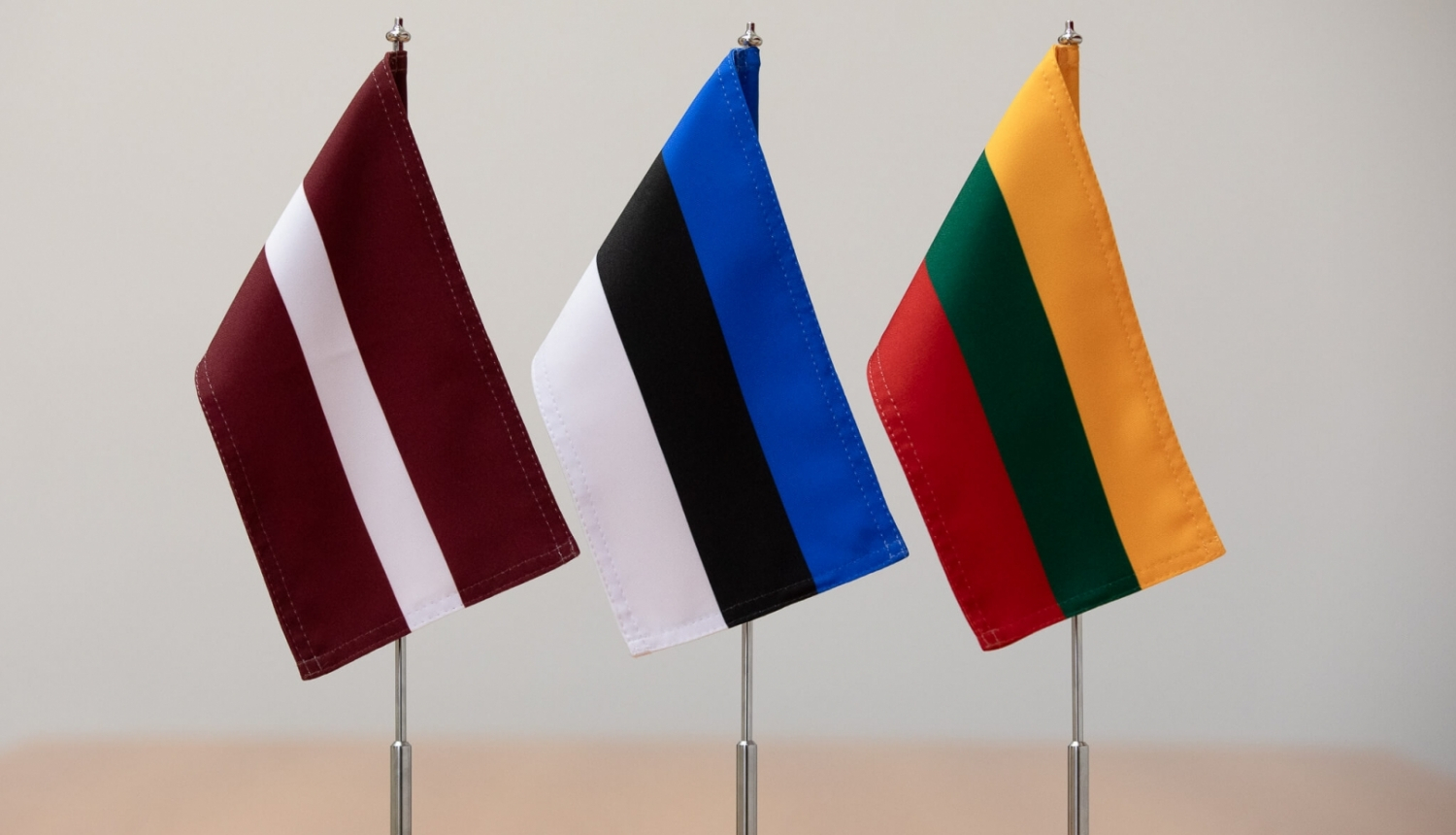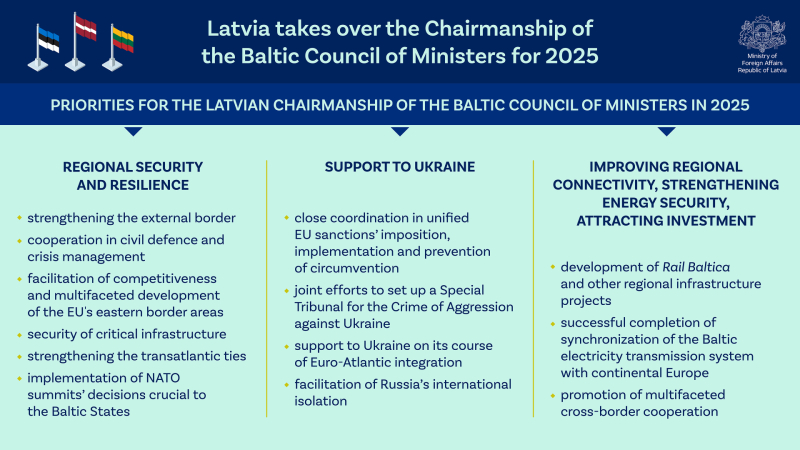On 1 January 2025, Latvia takes over the chairmanship of the Baltic Council of Ministers (BCM) for a year. The priority directions for cooperation among the Baltic States under the Latvian chairmanship will be regional security and resilience, support to Ukraine, as well as the improvement of regional connectivity, strengthening energy security, and attracting investment.
In 2025, the Baltic States will continue working together to develop their security and defence capabilities. Particular attention will be paid to strengthening the external border, deepening cooperation in civil protection and crisis management, security of critical infrastructure, combating disinformation, and strengthening of societal resilience. Strategic objectives such as strengthening the transatlantic ties and implementing decisions made at NATO summits will remain high on the agenda. Priority will be given to the promotion of the competitiveness, multilateral development and resilience of the European Union’s (EU) eastern border area.
The Baltic States will stand firm in their support to Ukraine in its existential fight for territorial integrity, sovereignty and freedom. Close coordination between Estonia, Latvia and Lithuania will continue both in the imposition, implementation and the prevention of circumvention of unified EU sanctions, and in a joint effort to establish a Special Tribunal for the Crime of Aggression against Ukraine. Support to Ukraine in its Euro-Atlantic integration process will remain unchanged. Every effort will be made to mobilise global support to Ukraine as well as promoting Russia’s international isolation.
In strengthening regional connectivity and developing infrastructure, priority will be given to the Rail Baltica project at both national and regional level. A successful completion of the Baltic States synchronisation with the Synchronous Grid of Continental Europe in February 2025 will lead to the conclusion of an important stage in improving our energy security. Business cooperation and the implementation of regional development and cross-border projects will retain their relevance.
Founded on 13 June 1994, the Baltic Council of Ministers (BCM) is an institution for cooperation between the governments of Estonia, Latvia and Lithuania. The role of the BCM is to ensure continuity of cooperation at the level of national executive authorities, as well as to implement collaboration between governments and the Baltic Assembly (Parliaments). The BCM chairmanship is rotated among the Baltic States on a yearly basis.
The Ministry of Foreign Affairs in Latvia acts as the BCM Secretariat and ensures the functioning of the BCM.






